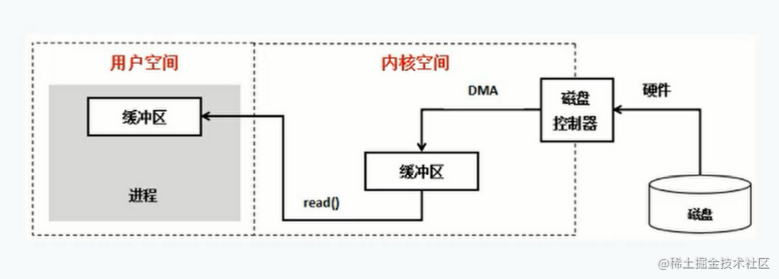我们还是先引入 Maven 依赖
<!-- Spring框架基本的核心工具 -->
<dependency>
<groupId>org.springframework</groupId>
<artifactId>spring-context-support</artifactId>
</dependency>
<!-- SpringWeb模块 -->
<dependency>
<groupId>org.springframework</groupId>
<artifactId>spring-web</artifactId>
</dependency>
<!-- 自定义验证注解 -->
<dependency>
<groupId>org.springframework.boot</groupId>
<artifactId>spring-boot-starter-validation</artifactId>
</dependency>
<!--常用工具类 -->
<dependency>
<groupId>org.Apache.commons</groupId>
<artifactId>commons-lang3</artifactId>
</dependency>
<!-- io常用工具类 -->
<dependency>
<groupId>commons-io</groupId>
<artifactId>commons-io</artifactId>
</dependency>
<!-- JSON工具类 -->
<dependency>
<groupId>com.fasterxml.jackson.core</groupId>
<artifactId>jackson-databind</artifactId>
</dependency>
<!-- 阿里JSON解析器 -->
<dependency>
<groupId>com.alibaba</groupId>
<artifactId>fastjson</artifactId>
</dependency>
<!-- servlet包 -->
<dependency>
<groupId>JAVAx.servlet</groupId>
<artifactId>javax.servlet-api</artifactId>
</dependency>
复制代码
接下来我们实现一个注解类(注解在 Java 中与类、接口的声明类似,只是所使用的关键字有所不同,声明注解使用 @interface 关键字。在底层实现上,所有定义的注解都会自动继承
java.lang.annotation.Annotation 接口。)
import java.lang.annotation.Documented;
import java.lang.annotation.ElementType;
import java.lang.annotation.Retention;
import java.lang.annotation.RetentionPolicy;
import java.lang.annotation.Target;
/**
* 自定义注解防止表单重复提交
*/
@Target(ElementType.METHOD)
@Retention(RetentionPolicy.RUNTIME)
@Documented
public @interface RepeatSubmit
{
/**
* 间隔时间(ms),小于此时间视为重复提交
*/
public int interval() default 5000;
/**
* 提示消息
*/
public String message() default "不允许重复提交,请稍后再试";
}
复制代码
P.S. 关于自定义注解的解释在之前的博客中有写到,这里就不再多说了,有需要了解的小伙伴请移步至:大聪明教你学Java | Spring Boot 使用自定义注解实现操作日志的记录
下面我们再实现一个拦截器,对提交表单的过程做一个相应的拦截校验
import java.lang.reflect.Method;
import javax.servlet.http.HttpServletRequest;
import javax.servlet.http.HttpServletResponse;
import org.springframework.stereotype.Component;
import org.springframework.web.method.HandlerMethod;
import org.springframework.web.servlet.HandlerInterceptor;
/**
* 防止重复提交拦截器
*/
@Component
public abstract class RepeatSubmitInterceptor implements HandlerInterceptor
{
@Override
public boolean preHandle(HttpServletRequest request, HttpServletResponse response, Object handler) throws Exception
{
if (handler instanceof HandlerMethod)
{
HandlerMethod handlerMethod = (HandlerMethod) handler;
Method method = handlerMethod.getMethod();
RepeatSubmit annotation = method.getAnnotation(RepeatSubmit.class);
if (annotation != null)
{
if (this.isRepeatSubmit(request, annotation))
{
//如果本次提交被认为是重复提交,则在此处做具体的逻辑处理
//如:弹出警告窗口等
return false;
}
}
return true;
}
else
{
return true;
}
}
/**
* 验证是否重复提交由子类实现具体的防重复提交的规则
*
* @param request 请求对象
* @param annotation 防复注解
* @return 结果
*/
public abstract boolean isRepeatSubmit(HttpServletRequest request, RepeatSubmit annotation) throws Exception;
}
复制代码
我们可以看到再拦截器中一共有两个方法,分别是 preHandle 和 isRepeatSubmit。无论我们执行什么请求,都会进入 RepeatSubmitInterceptor 拦截器,进入拦截器后先执行 preHandle 方法进行预处理,判断本次拦截的方法是否增加了 RepeatSubmit 自定义注解,如果增加了该注解才会进行具体的校验。isRepeatSubmit 方法是防止表单重复提交的规则,我们通过子类来实现 isRepeatSubmit 具体的校验规则
import java.util.HashMap;
import java.util.Map;
import javax.servlet.http.HttpServletRequest;
import javax.servlet.http.HttpSession;
import com.mumu.framework.interceptor.RepeatSubmitInterceptor;
import org.springframework.stereotype.Component;
import com.mumu.common.annotation.RepeatSubmit;
import com.xxx.xxx.xxx.JSON;
/**
* 判断请求url和数据是否和上一次相同
* com.xxx.xxx.xxx.JSON; 是自定义的json工具类,具体代码贴在后面
*/
@Component
public class SameUrlDataInterceptor extends RepeatSubmitInterceptor
{
public final String REPEAT_PARAMS = "repeatParams";
public final String REPEAT_TIME = "repeatTime";
public final String SESSION_REPEAT_KEY = "repeatData";
@SuppressWarnings("unchecked")
@Override
public boolean isRepeatSubmit(HttpServletRequest request, RepeatSubmit annotation) throws Exception
{
// 本次参数及系统时间
String nowParams = JSON.marshal(request.getParameterMap());
Map<String, Object> nowDataMap = new HashMap<String, Object>();
nowDataMap.put(REPEAT_PARAMS, nowParams);
nowDataMap.put(REPEAT_TIME, System.currentTimeMillis());
// 请求地址(作为存放session的key值)
String url = request.getRequestURI();
HttpSession session = request.getSession();
Object sessionObj = session.getAttribute(SESSION_REPEAT_KEY);
if (sessionObj != null)
{
Map<String, Object> sessionMap = (Map<String, Object>) sessionObj;
if (sessionMap.containsKey(url))
{
Map<String, Object> preDataMap = (Map<String, Object>) sessionMap.get(url);
if (compareParams(nowDataMap, preDataMap) && compareTime(nowDataMap, preDataMap, annotation.interval()))
{
return true;
}
}
}
Map<String, Object> sessionMap = new HashMap<String, Object>();
sessionMap.put(url, nowDataMap);
session.setAttribute(SESSION_REPEAT_KEY, sessionMap);
return false;
}
/**
* 判断参数是否相同
*/
private boolean compareParams(Map<String, Object> nowMap, Map<String, Object> preMap)
{
String nowParams = (String) nowMap.get(REPEAT_PARAMS);
String preParams = (String) preMap.get(REPEAT_PARAMS);
return nowParams.equals(preParams);
}
/**
* 判断两次间隔时间
*/
private boolean compareTime(Map<String, Object> nowMap, Map<String, Object> preMap, int interval)
{
long time1 = (Long) nowMap.get(REPEAT_TIME);
long time2 = (Long) preMap.get(REPEAT_TIME);
if ((time1 - time2) < interval)
{
return true;
}
return false;
}
}
复制代码
自定义 Json 工具类
import java.io.File;
import java.io.IOException;
import java.io.InputStream;
import java.io.OutputStream;
import com.fasterxml.jackson.core.JsonGenerationException;
import com.fasterxml.jackson.core.JsonParseException;
import com.fasterxml.jackson.databind.JsonMAppingException;
import com.fasterxml.jackson.databind.ObjectMapper;
import com.fasterxml.jackson.databind.ObjectWriter;
/**
* JSON解析处理
*/
public class JSON
{
private static final ObjectMapper objectMapper = new ObjectMapper();
private static final ObjectWriter objectWriter = objectMapper.writerWithDefaultPrettyPrinter();
public static void marshal(File file, Object value) throws Exception
{
try
{
objectWriter.writeValue(file, value);
}
catch (JsonGenerationException e)
{
throw new Exception(e);
}
catch (JsonMappingException e)
{
throw new Exception(e);
}
catch (IOException e)
{
throw new Exception(e);
}
}
public static void marshal(OutputStream os, Object value) throws Exception
{
try
{
objectWriter.writeValue(os, value);
}
catch (JsonGenerationException e)
{
throw new Exception(e);
}
catch (JsonMappingException e)
{
throw new Exception(e);
}
catch (IOException e)
{
throw new Exception(e);
}
}
public static String marshal(Object value) throws Exception
{
try
{
return objectWriter.writeValueAsString(value);
}
catch (JsonGenerationException e)
{
throw new Exception(e);
}
catch (JsonMappingException e)
{
throw new Exception(e);
}
catch (IOException e)
{
throw new Exception(e);
}
}
public static byte[] marshalBytes(Object value) throws Exception
{
try
{
return objectWriter.writeValueAsBytes(value);
}
catch (JsonGenerationException e)
{
throw new Exception(e);
}
catch (JsonMappingException e)
{
throw new Exception(e);
}
catch (IOException e)
{
throw new Exception(e);
}
}
public static <T> T unmarshal(File file, Class<T> valueType) throws Exception
{
try
{
return objectMapper.readValue(file, valueType);
}
catch (JsonParseException e)
{
throw new Exception(e);
}
catch (JsonMappingException e)
{
throw new Exception(e);
}
catch (IOException e)
{
throw new Exception(e);
}
}
public static <T> T unmarshal(InputStream is, Class<T> valueType) throws Exception
{
try
{
return objectMapper.readValue(is, valueType);
}
catch (JsonParseException e)
{
throw new Exception(e);
}
catch (JsonMappingException e)
{
throw new Exception(e);
}
catch (IOException e)
{
throw new Exception(e);
}
}
public static <T> T unmarshal(String str, Class<T> valueType) throws Exception
{
try
{
return objectMapper.readValue(str, valueType);
}
catch (JsonParseException e)
{
throw new Exception(e);
}
catch (JsonMappingException e)
{
throw new Exception(e);
}
catch (IOException e)
{
throw new Exception(e);
}
}
public static <T> T unmarshal(byte[] bytes, Class<T> valueType) throws Exception
{
try
{
if (bytes == null)
{
bytes = new byte[0];
}
return objectMapper.readValue(bytes, 0, bytes.length, valueType);
}
catch (JsonParseException e)
{
throw new Exception(e);
}
catch (JsonMappingException e)
{
throw new Exception(e);
}
catch (IOException e)
{
throw new Exception(e);
}
}
}
复制代码
在校验的过程中主要针对三个部分做校验:请求地址、请求参数以及请求时间,只有当请求地址和请求参数一致且两次请求的时间间隔小于xx毫秒时(xx毫秒即为在自定义注解中指定的时间),才会被判定为是重复提交。这种校验方式较为繁琐(毕竟需要比对三部分内容),但是它可以尽可能的避免出现“误拦截”的情况,让系统有更高的可用性和安全性。
本文中提到的方法只是众多方法中的一种,我个人也是通过这种方式来实现的防止表单重复提交。当然了,我们可以选择的办法有很多,比如采用 JS 禁用提交按钮、利用Session防止表单重复提交等等,最终如何选择还是要根据自己的应用和开发框架来决定,选择一个适合自己的方法才是最好的。









